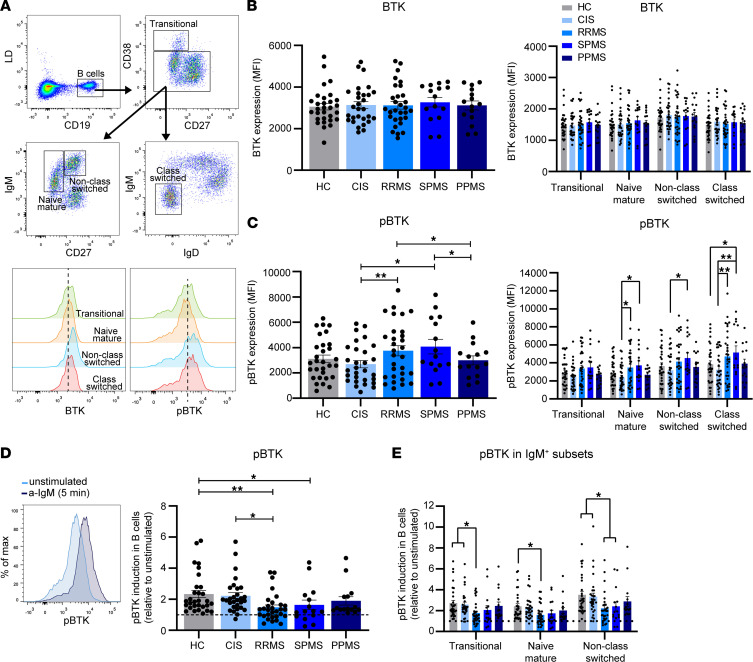Figure 1. Phospho-BTK is upregulated and less induced in B cells from patients with RRMS and SPMS.
(A) FACS gating strategy used to analyze total BTK protein and phospho-BTK (pBTK) expression levels (MFI) in transitional (CD38hiCD27–), naive mature (CD38dim/–IgM+CD27–), non–class-switched (CD38dim/–IgM+CD27+) and class-switched (CD38dim/–IgM–IgD–) B cell subsets. (B) Total BTK protein and (C) phospho-BTK levels were studied in blood B cells (left, total; right, subsets) from healthy controls (HCs; n = 30) and different MS patient groups, including clinically isolated syndrome (CIS; n = 29), relapsing-remitting MS (RRMS; n = 30), secondary progressive MS (SPMS; n = 15), and primary progressive MS (PPMS; n = 15). The inducibility of phospho-BTK in (D) total B cells and (E) IgM+ subsets was compared between patient and control groups using anti-IgM for 5 minutes. These FACS data were collected in 3 independent experiments, with 5–10 samples from controls and each patient group per experiment. Data are presented as the mean ± SEM. Two-way ANOVA with Fisher’s least significant difference post hoc test was performed. *P < 0.05, **P < 0.01.

